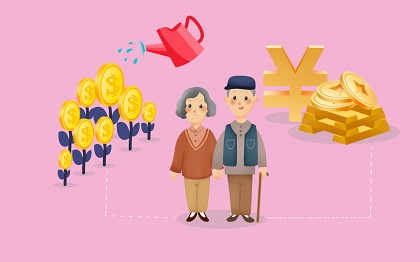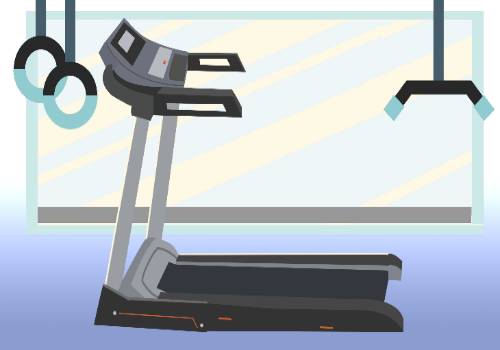TED 演讲原文稿: The secret to a happy life -- lessons from 8 decades|快看点
文稿原文:
幸福生活的秘密——来自80年研究的经验教训
 (资料图片)
(资料图片)
The secret to a happy life -- lessons from 8 decades of research
00:00
Hello, everybody, I am delighted to be here and grateful to all of you for joining us for this discussion. In 2015, I gave a TEDx Talk in a little elementary school auditorium, and much to my surprise, the talk became one of the 10 most-viewed talks in the history of TED. And in that talk, I conveyed one simple scientific finding. The finding that when we study hundreds of people over their entire adult lives, the people who turn out to be the happiest and the healthiest are those who have good, warm connections to others.
00:53
So today, I want to take you deeper into this whole subject, by exploring how relationships matter in our lives, how they affect our health, what kinds of relationships give us this big benefit in happiness, and which tools you can start using today to make your relationship stronger.
01:18
So I do direct this Harvard Study of Adult Development. It's, as far as we know, the longest study of the same people that's ever been done, following people since 1938. From adolescence all the way through old age, and now following all of their children, thousands of lives. And we began to find, about 30 years ago, this startling connection between warm relationships and how good our lives feel to us, our well-being, and also the fact that warm relationships seemed to keep people both physically stronger and kept their brains sharper as they grew older. And we didn't believe the data at first. We thought, how could this be that relationships actually get into our bodies and shape our health? But then other studies began to find the same thing. We found that people had less depression, they were less likely to get diabetes and heart disease, that they recovered faster from illness when they had better connections with other people.
02:39
So then the question is: How could this work? How do relationships shape our happiness and our physical health?
02:47
Well, one of the best theories, for which there's now some pretty good evidence, is based on the idea of stress. That, as we know, stress is an inevitable part of all of our lives. Stress happens to us every day. And what we find is that good relationships turn out to be stress regulators. So let me give you an example. Let's say that I have something upsetting happen to me during the day, and I find myself, like, ruminating about it and really thinking about it and unhappy. I can feel my body go into what we call fight or flight response where literally my heart rate goes up and I might start sweating a little bit and I'm just not feeling as well. Now, what we're meant to do is to come back to equilibrium when a stressor goes away. That's the way the body is supposed to work. But what happens if I go home at the end of my upsetting day and I have somebody to talk to? Either I can call someone on the phone or it's somebody I live with. I can literally feel my body calm down. I can feel that fight or flight response subside.
04:10
But what if I don't have anybody to go home to? What if there's nobody I can call? What we find is that people who are isolated, are lonely, don't have those stress regulators that we get from good relationships and that we stay in chronic fight or flight mode, that our bodies have this chronic stress, chronic levels of inflammation and circulating stress hormones that wear away our happiness and break down different body systems.
04:48
Well, what kinds of relationships seem essential to well-being? And this is interesting. We asked people who were our original participants in our study. We asked them, Who could you call in the middle of the night if you were sick or scared? And many of our people could list several other people they could call if they were in trouble. Some people couldn't list anyone. There wasn't a person on the planet who they could turn to if they were sick or scared. And what we find is that having at least one person in your life who you feel really has your back, who you could go to if you were in trouble, that's essential for maintaining our happiness and our health. When we asked these same people, when they got to be in their 80s, to look back on their lives and to tell us what they were proudest of, almost everybody said something about their relationships. They didn't say, "I made a lot of money" or "I won some big awards." They said, "I was a good mentor," "I was a good friend," "I raised healthy kids," "I was a good partner." And so what we find is that what seems to mean the most to people when they get to the end of their lives is the strength and the warmth of their connections to others.
06:25
So then the question comes up, well, which types of relationships support our well-being? Some people have asked, "Do I need to be in an intimate relationship to get this benefit?" Absolutely not. All types of relationships support our well-being. So friendships, relatives, work colleagues, casual contacts. The person who gets you your coffee every morning at Starbucks or Dunkin' Donuts, the person who checks you out in the grocery store, who you see maybe every week. Even talking to strangers has that benefit.
07:05
So they did an experiment where they assigned some people who were about to go on the subway the task of talking to a stranger while other people were assigned the task of just doing their usual thing of being on their phones or listening to music or reading. It turned out that the people who were assigned to talk to strangers didn't think they were going to like it, but they turned out to be much happier at the end of the task than the people who just rode the subway keeping to themselves. So even talking to strangers gives us that little hit of well-being from relationships.
07:45
So the question comes up: How can we strengthen our connections with other people? And this is where we've come to think about it as a kind of social fitness. If we think about physical fitness, you know, we we think, OK, I'll go to the gym, I’ll work out, I’ll take a long walk, I'll do something to keep myself strong and fit. But then we come home and we don't say, I'm done, I don't ever have to do that again. We have the sense that physical fitness is a practice that we need to maintain over time. It turns out that social fitness is the same. That in fact, our friendships, our relationships don't just take care of themselves, that even good relationships need tending to, they need attention. They need returning to them over and over again.
08:36
So what are some ways that we can strengthen our relationships? Well, one way is to be proactive, to take the initiative. So to reach out to a friend and ask her to take a walk instead of spending two more hours on your laptop this weekend on Saturday afternoon. Establish some routines with the people who are most important to you. A regular phone call or a coffee every Saturday with someone you really want to be sure you see regularly. Or meeting somebody at the gym. Or having lunch with a coworker.
09:15
The other thing we can do is liven up those long-standing relationships, particularly like the people we live with. You know, people we can come to take for granted, by proposing to do something new. Going out on a date, just taking a walk, if that's not your usual routine. The other thing that we know works to help people, particularly who aren't as connected to others as they want to be, is to connect around shared interests. So volunteer in the community to do something that you care about. It might be a gardening club, it might be a bowling league, it might be a political cause. But to do something that you care about because then you're with other people who care about the same thing, and that's a natural place to start conversations that can lead to ongoing relationships. And finally, get more comfortable striking up casual conversations. That's something we can learn to be more comfortable with, almost like exercising a muscle.
10:26
So now, I would like to ask you to do one of these things, to make one of these choices that we can make every day. I'd like you to make that choice right now. Here’s my challenge to you: think about someone you miss, that you just haven't seen in a while or you haven't had contact with, and you'd like to make contact. You don't even have to have a particular reason. Now I want you to take out your phone or whatever device you use, right now, and send that person just a little note. It could say, "I'm just thinking of you and wanted to connect." Or you could say something more personal to you and to your relationship. And then watch what comes back to you. And while we're here, we may even have time to share with each other some of the responses that people get when they do this. So think of someone. And make contact right now. The point of this simple exercise is to remind us that even small actions can have ripple effects that build our well-being. And that these are things you can do every day in the moment.
11:54
Thank you.
https://www.ted.com/talks/robert_waldinger_the_secret_to_a_happy_life_lessons_from_8_decades_of_research/transcript
















































